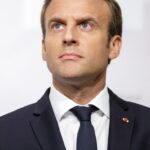
Venezuelans are living through simultaneous economic, humanitarian, and political crises that have become more acute over the past decade. Thousands have been detained as political prisoners in this time period, with a recent United Nations report declaring that repression of dissent is well orchestrated and frequently relies on torture. Millions of Venezuelans have fled to neighboring countries in the past seven years, and they are increasingly taking the risky journey to arrive at the U.S. border in search of protection. Why, then, is there a sudden sense of hope among the international community for Venezuela’s future?
We’ve been hearing about Venezuela’s woes for a long time. Is it worse now?
Yes. For more than a decade, Venezuela’s economy has been stuck in a tailspin, with sky-high inflation and shortages of food, medical products, and basic resources like water getting worse and keeping millions from meeting their basic needs. And the outward migration – some 7.1 million Venezuelan refugees and migrants reside outside the country, according to government statistics – makes this the second-largest external displacement crisis in the world.
Political chaos has defined the past five years in Venezuela. Disputed President Nicolás Maduro, the handpicked successor of the late former President Hugo Chávez, narrowly won election in 2013. He was at the helm during the height of the nation’s economic breakdown and has faced numerous, sometimes violent, public protests. His 2018 reelection was widely considered fraudulent, and in 2019, opposition leader Juan Guaidó led an uprising, claiming himself the interim president on the grounds that the 2018 vote was rigged. International governments, including the United States and dozens of others, recognized his presidency at the time. But little changed, and scores of politicians and others seen as threats to Mr. Maduro’s government have since been imprisoned or put under house arrest.
The opposition is split over how to face down political repression, which is a chronic challenge, according to the U.N. report published this fall. It documented human rights abuses including torture and sexual violence against journalists, nongovernmental organization workers, opposition politicians, and even children.
Wait, I’m having trouble seeing the hope. Where is it again?
Negotiations were held Nov. 26, and they are seen as a potential breakthrough for the deeply divided country. They mark the first formal talks between Mr. Maduro’s government and the opposition in more than a year. Both sides agreed to create a humanitarian fund made up of some $3 billion of Venezuelan assets previously frozen by U.S. financial sanctions. The details of the relief fund are expected in the coming weeks, and it is to be administered by the U.N., prioritizing addressing malnutrition and investment in health care and infrastructure. Negotiators agreed to continue talks this month and to discuss a timetable for presidential elections in 2024.
The U.S. government responded by easing years-old sanctions to allow Chevron Corp. to resume joint oil operations in Venezuela. The Biden administration says it will continue to assess whether Mr. Maduro’s government is meeting the commitments of the preliminary accord. According to the plan, the proceeds of oil sales will not go into governmental pockets but instead toward paying off Venezuelan creditors in the U.S.
Marcelo Ebrard, the foreign minister of Mexico, which hosted the November talks, said the preliminary agreement represents “hope for all of Latin America.” Foreign newspapers ran hopeful headlines like “Setting a different course” and “Breakthrough in Venezuela.”
“There are reasons to think this is different. This is the most robust negotiation process in Venezuelan history,” says Geoff Ramsey, the Venezuela director at the Washington Office on Latin America, a research and advocacy organization. “Maduro is facing cold, hard incentives leading him back to the negotiation table,” including international isolation and “a major” cash flow problem. “It’s not a matter of waiting for the regime to negotiate in good faith – it’s a matter of incentives,” which include sanctions relief, Dr. Ramsey says.
It took back channel work by foreign governments, primarily Norway, to reignite talks. But the return of these opposing factions wasn’t about them suddenly seeing eye to eye or trusting one another, says Michael Penfold, a political science professor at the Institute of Advanced Studies of Administration in Venezuela. He credits the U.S. changing its approach. “For the first time, they’re using sanctions more as incentives, rather than perpetual punishment,” he says.
The U.S. has had some form of sanctions slapped on Venezuela for the past 15 years, targeting everything from individuals to government officials to the state-run oil company, Petróleos de Venezuela. Venezuela has the world’s largest oil reserves, which it’s been largely unable to capitalize on due to American sanctions.
But, Dr. Penfold questions whether the leverage of sanctions will be enough to keep Chavistas at the table. “They care about sanctions, they do care,” he says of Mr. Maduro’s government. “But they care about power, too.”
So how can we trust that things will improve while Mr. Maduro still holds the power?
Despite some international optimism, many in fact remain skeptical about these negotiations. The Maduro government, says Dr. Penfold, has proved its ability to effectively shore up power – and break down any semblance of unity among the opposition – over the past several years. The Venezuelan population has suffered, but the government has maintained power.
A pillar of last month’s talks was the need to organize elections in 2024. The government has banned or arrested opposition candidates in the lead-up to past votes, which means they are choosing the type of candidate they want to run against, says Dr. Penfold. They might not be stuffing ballot boxes, he says, but they are manipulating the electoral process.
The international community has a role in keeping the integrity of the negotiations intact. Faulting the Chevron decision, Brian Winter, editor-in-chief of America’s Quarterly, in a Dec. 1 tweet likened the country to “the new Saudi Arabia – a loathsome dictatorship with which the US has decided to do business in name of oil, post-Ukraine.”
The reactivation of the talks aren’t a “blank check for the regime,” says Dr. Ramsey. “The international community needs to keep a close eye on the implementation of the agreement,” he says, but key to success will be broadening who is actually at the negotiating table.
“So far this process has been led by political actors, but there’s a huge need to engage with the broader Venezuelan society,” he says. Without including the voices and perspectives of civil society or the victims of violence or human rights violations, the negotiations are “unlikely to succeed.”
Read this story at csmonitor.com
Become a part of the Monitor community




